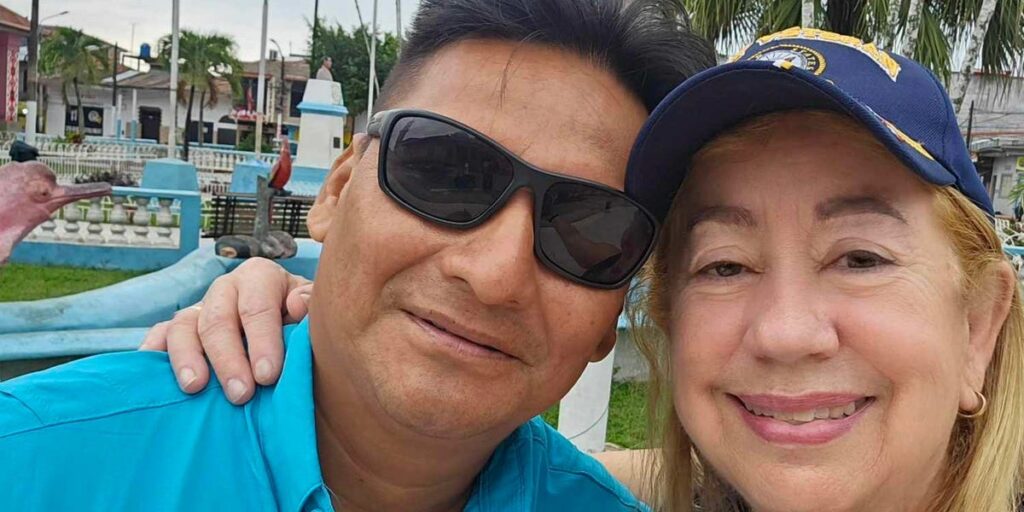- After two years of being married, my Peruvian husband wanted to move back home.
- I love adventures and adapt easily; I wold all my belongings in New Mexico and followed him.
- Now, I live part-time in Peru and part-time in Las Vegas.
Moving to a new country is a life-changing experience, and my decision to relocate to Peru for my Peruvian husband was no exception.
After only two years of marriage living in the US, my husband wanted to move back to Peru and asked me to come with him. I found myself at a crossroads, faced with the choice between maintaining my familiar life in the US and embarking on a new adventure in a culturally rich and vibrant country.
As a retired US citizen with federal government and military service pensions, I thought I would adapt easily. As a seasoned travel writer and photographer, I was used to traveling and embracing cultural learning and diversity worldwide. I was ready for a change.
Ultimately, my love for my husband and desire to embrace a fresh chapter in life led me to choose Peru. I admit that my love for adventure made it easy for me to embrace this chapter.
My husband wasn’t happy in the US
One of the most compelling reasons behind my decision to move was my partner’s profound discontent with various aspects of life in the United States.
Understanding his struggles and uneasiness in the US made me realize that my decision to join him in Peru could provide the emotional support he needed to feel less alienated and more connected. This shared understanding of each other’s different backgrounds and experiences was fundamental to my relocation choice.
I had to embrace a new culture
One of the most profound lessons I learned while moving to Peru is the importance of embracing cultural differences. Peru, a country steeped in rich history and diverse landscapes, offers an array of experiences that range from the lush Amazon rainforest to the majestic Andes mountains. The vibrant cultural tapestry, lively festivals, and fresh cuisine drew me in from the beginning.
Together, we explored ancient sites such as Machu Picchu and Sacred Valley, experiences that deepened my appreciation for Peru’s rich history and stunning beauty.
Cultural differences can be both exciting and challenging. However, embracing these differences enriches our lives and strengthens our relationships, creating a bond rooted in mutual respect and understanding.
Some things were hard to adapt for
Looking back, I wish I had conducted more extensive research on both the culture and the practicalities of life in Peru. Although I had a basic understanding of the country, I underestimated the importance of grasping cultural nuances, including climatic differences, communication styles, and social customs.
For example, I wasn’t quite prepared to go from dry heat at altitude to the humid tropics at sea level. My four-season wardrobe included extreme weather gear associated with my wildlife photography. Few of my clothes, save for my safari outfits, were suitable for the rainforest.
Moving to another country involves a fair amount of paperwork and legal considerations. From visas to residency permits, navigating the bureaucratic landscape can be overwhelming. Though I did research in advance, everything seemed different once I was in Peru. I can’t emphasize enough how important having a team of professionals to help you while in Peru is.
Applying for a “Rentista Visa” was stressful, expensive, and exhausting. I chose this route as my immigration status was not tied to my marriage but rather to my ability to support myself.
Additionally, healthcare is very different in Peru, and I left good insurance with Medicare, Blue Cross Blue Shield, and Tricare behind in the states.
The US healthcare system offers cutting-edge medical technology and specialists, while Peru offers free or low-cost healthcare in theory. In practice and my experience, there is a lack of trained medical professionals, resulting in inadequate care for those who need it most. We live in the jungle gateway city of Iquitos. If you need any specialization, almost always, you must fly to Lima, about 1 ½ hours.
Nowadays, I split my time between Iquitos, Peru and Las Vegas, as I eventually found it necessary to have a US presence for medical reasons. And sometimes, I just need to live in a country where you don’t have to put your soiled toilet paper in a trash can because the decrepit sewer system can’t process paper waste.
Read the full article here
















